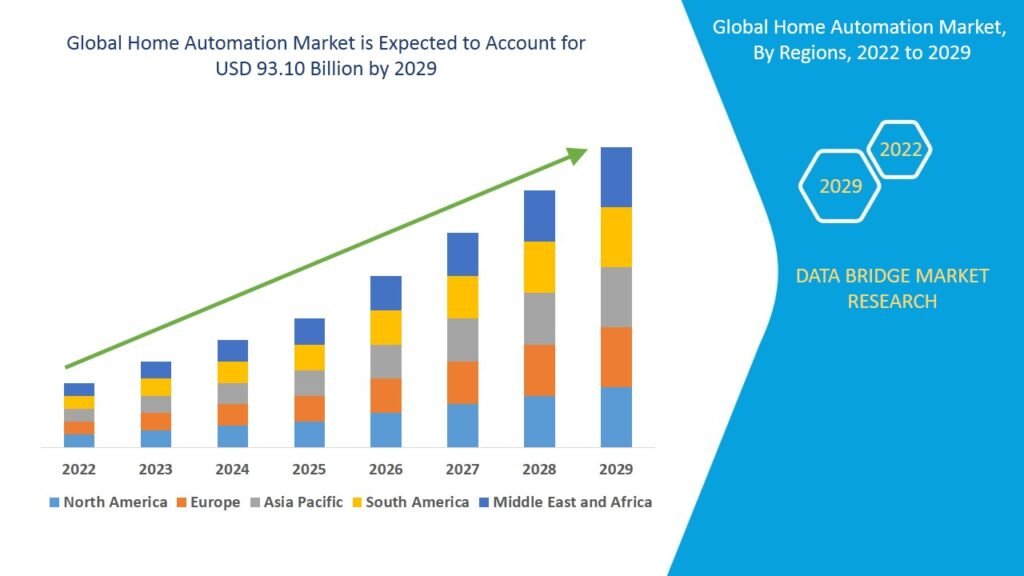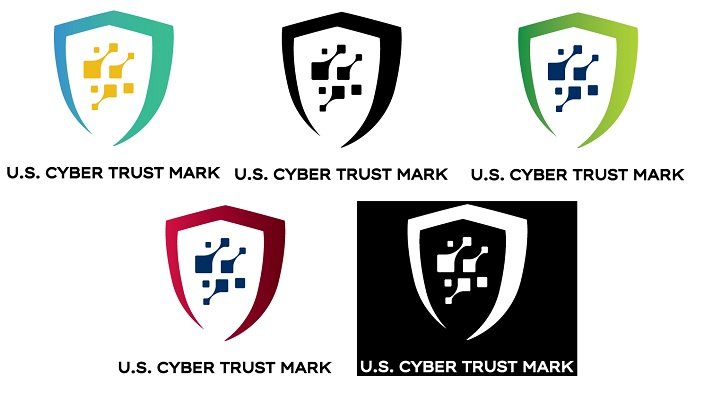The Future of Smart Home Automation:
The world of home automation has witnessed significant advancements in recent years, propelling traditional houses into the realm of futuristic smart homes. As technology becomes increasingly integrated into our daily lives, the smart home revolution has emerged as a prominent trend, providing unparalleled convenience, efficiency, and control over our living spaces.
With a wide range of interconnected devices and intelligent systems, the future of smart home automation promises to redefine how we live, offering enhanced comfort, security, and energy management for a more streamlined and sophisticated living experience.

What is Smart Home Automation?
Smart home automation refers to the integration of technology and devices within a household to enhance convenience, comfort, and efficiency. By connecting various devices and systems through a central control hub, such as a smartphone or voice assistant, homeowners can remotely manage and automate tasks such as lighting, security, temperature, and entertainment.
The future of smart home automation holds immense potential, as advancements in artificial intelligence and the Internet of Things continue to drive innovation, enabling greater customization, energy savings, and seamless integration of devices for a more connected and intelligent living experience.
Artificial Intelligence Integration in Smart Home Automation
The future of smart home automation lies in the integration of artificial intelligence (AI). AI is transforming the way smart homes operate by enabling advanced automation and personalized experiences. Combining machine learning, natural language processing, and computer vision, AI can understand and adapt to homeowners’ preferences, making tasks more efficient and convenient.
Integrating AI into smart home systems empowers them to learn from user behavior, anticipate needs, and automate routine tasks, such as adjusting lighting, temperature, and security.
However, as AI becomes more prevalent in smart homes, there are challenges to address, including privacy concerns, data security, and the need for seamless integration with existing devices. Nonetheless, the potential benefits of AI in smart homes are vast, offering enhanced comfort, energy efficiency, and overall convenience for a wide range of users.
Machine Learning Integration in Smart Home Automation
Machine learning integration in smart home automation holds immense potential for the future. Understanding machine learning is essential to harness its power in creating more intelligent and efficient smart homes.
By leveraging machine learning algorithms, smart homes can adapt to users’ preferences, anticipate their needs, and optimize energy consumption. Applications of machine learning in smart homes span across various domains, including security, energy management, and personalized recommendations.
With machine learning, smart homes can enhance the user experience by providing personalized and context-aware services, making them an indispensable aspect of our future homes.
Voice Control in Smart Home Automation
Voice control is poised to revolutionize the future of smart home automation. With the advent of advanced voice recognition technology, homeowners can now seamlessly interact with their smart devices using natural language commands.
This breakthrough eliminates the need for manual control and offers a new level of convenience and accessibility. By simply speaking, users can effortlessly adjust their lighting, temperature, security systems, and more, creating a truly interconnected and intuitive living space.
Voice control is a prominent feature in the future of smart home automation. Its advantages lie in its convenience and hands-free operation, allowing users to effortlessly control various devices and systems with just their voice.
However, voice control also presents limitations, such as potential privacy concerns and the need for clear and precise vocal commands. As the technology continues to evolve, striking a balance between the advantages and limitations of voice control will be crucial in shaping the future of smart home automation.
Integration of IoT Devices
The future of smart home automation is heavily reliant on the Internet of Things (IoT). IoT refers to the network of interconnected devices embedded with sensors, software, and connectivity that allows them to exchange data and perform tasks.
In the context of smart home automation, IoT enables seamless communication and coordination between various devices and systems, such as lighting, security, heating, and entertainment, ultimately enhancing convenience and efficiency for homeowners. With IoT, smart homes can be equipped with intelligent sensors that collect data, enabling automated decision-making and personalized experiences.
Additionally, IoT integration allows for remote monitoring and control, making it possible to manage and adjust home systems from anywhere in the world. As IoT technology continues to advance, the future of smart home automation holds tremendous potential for transforming how we live and interact with our living spaces.
Augmented Reality for Home Design and Maintenance
The future of smart home automation will encompass Augmented Reality (AR) technologies for design and maintenance purposes. Homeowners will be able to visualize how different furniture or decorations fit into their space before making any purchases. This innovative approach will enhance the home design process, allowing for more informed decisions.
Additionally, AR will guide homeowners in performing routine maintenance tasks, providing step-by-step instructions and virtual assistance. This integration of AR into smart home automation will streamline home management, making it more accessible and user-friendly for individuals of all backgrounds and skill levels.
The future of smart home automation lies in the integration of Augmented Reality (AR) applications. AR technology has the potential to revolutionize the way we interact with our homes, making them more intuitive and personalized. With AR, homeowners can visualize and control various aspects of their smart homes through immersive experiences.
This technology enables users to overlay virtual information onto the physical environment, allowing for seamless interaction and management of smart devices. From adjusting lighting and temperature to controlling security systems, AR applications in smart homes offer unparalleled convenience and efficiency. As AR continues to advance, we can expect a future where smart homes become truly intelligent and responsive to our needs.
Energy Efficiency and Sustainability
The future of smart home automation will be deeply rooted in sustainability and energy efficiency. Smart homes will employ advanced sensors and data analytics to optimize energy consumption, reducing waste and lowering utility bills. AI-powered algorithms will assess energy usage patterns and suggest improvements to minimize the home’s environmental impact.
Solar panels, smart grids, and energy storage systems will also become more prevalent, allowing smart homes to operate off-the-grid and contribute positively to the environment.
Enhanced Home Security
Security has always been a crucial aspect of smart homes, and the future will witness a significant leap in this domain. Biometric authentication methods, such as facial recognition and fingerprint scanning, will become standard for access control.
Advanced AI algorithms will analyze real-time data from cameras and motion sensors to identify potential threats and act accordingly, ensuring a secure living environment for homeowners.
| Home Automation | Summary |
|---|---|
| AI and ML Integration | Smart homes will seamlessly adapt to user preferences using AI and ML, enhancing convenience and security. |
| Voice Control | Voice commands will be pervasive, making manual switches and remote controls obsolete for effortless control. |
| IoT Devices | Interconnected IoT devices will create personalized experiences, such as smart fridges suggesting recipes. |
| Efficiency and Sustainability | Smart homes will prioritize energy optimization with sensors, AI, and renewable energy sources like solar panels. |
| Home Security | Biometric authentication and AI-driven security systems will ensure a safer living environment for homeowners. |
| AR for Home Design | AR technologies will allow homeowners to visualize and maintain their spaces, simplifying home management. |
Conclusion
The future of smart home automation is undoubtedly an exciting prospect, with technology continually evolving to make our lives more comfortable, efficient, and sustainable. The integration of AI, IoT, voice control, and augmented reality will create an ecosystem where our homes intuitively understand and cater to our needs. With enhanced security and energy efficiency at the core, smart homes will not only elevate our lifestyles but also contribute positively to the environment.
As we look ahead, the smart home of tomorrow promises to be a harmonious blend of technology and human convenience, revolutionizing the way we interact with our living spaces.
“Your feedback helps us understand what you are looking for in a blog post and how we can improve our content. We appreciate your time and effort in taking the time to leave a comment or share our blog post.”
FAQs:
1. How will voice control evolve in smart homes?
Voice control will become even more pervasive, with every room and device responding to voice commands. Natural language processing advancements will make interactions with our smart homes feel increasingly human-like, eliminating the need for manual switches and remote controls.
2. What is the role of IoT in the future of smart homes?
The Internet of Things (IoT) will enable complete device integration in smart homes. Appliances, lighting systems, security cameras, and more will communicate and work together seamlessly, providing cohesive automation and personalized experiences for users.
3. How will smart homes focus on energy efficiency and sustainability?
The future of smart home automation will prioritize energy efficiency and sustainability. Advanced sensors and data analytics will optimize energy consumption, while AI algorithms will assess usage patterns and suggest improvements. Solar panels and energy storage systems will contribute to eco-friendly living off-the-grid.
4. What advancements can we expect in home security for smart homes?
Home security in smart homes will be significantly enhanced. Biometric authentication methods like facial recognition and fingerprint scanning will become standard for access control. AI algorithms will analyze real-time data from cameras and sensors to identify potential threats, ensuring a secure living environment.
5. How will Augmented Reality (AR) be used in smart homes?
AR will be employed for home design and maintenance. Homeowners will visualize furniture and decorations in their space before making purchases. Additionally, AR will offer step-by-step instructions and virtual assistance for routine maintenance tasks, simplifying home management for everyone.
Check out our other blog posts:
Smart Home Automation: An Introduction
Smart Home Automation Market Forecast and Trends to 2029
The benefits of smart home automation for energy efficiency!
The Evolution of Smart Home Automation: Tracing the history of smart home Technology
Subscribe to our email list to get notified about new blog posts.

